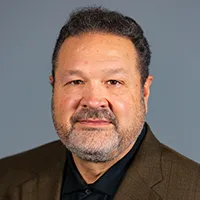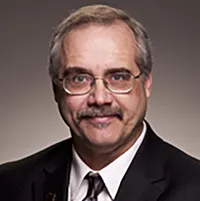Leadership

- 9Human Clinical Core Director
Dr. Kreider serves as Director of the Human Clinical Core (HCC) in the Human Clinical Research Facility. His primary duties include representing the HCC at meetings with the university administration, supporting faculty and sponsors who commission fee-for-service (FFS) testing, coordinating data collection for FFS testing, submitting invoices for FFS, and working with faculty and sponsors to conduct projects. Dr. Kreider was the former Head of the Department of Health & Kinesiology (2008 – 2017) and Executive Director of the Human Clinical Research Facility (2017 – 2022). Dr. Kreider has conducted over 100 clinical trials, received over $30 million dollars of research support as a PI, Co-PI, or consultant on grants and contracts, has been cited over 22,700 times in the literature (h-index 84, i10-index 186) according to Google Scholar, and is recognized internationally as a leading scholar on the role of exercise and nutrition on health, performance, disease, and rehabilitation.

Chris Rasmussen, MS, MX, CSCS, EPC
- 9Lab Coordinator
Dr. Kreider serves as Director of the Human Clinical Core (HCC) in the Human Clinical Research Facility. His primary duties include representing the HCC at meetings with the university administration, supporting faculty and sponsors who commission fee-for-service (FFS) testing, coordinating data collection for FFS testing, submitting invoices for FFS, and working with faculty and sponsors to conduct projects. Dr. Kreider was the former Head of the Department of Health & Kinesiology (2008 – 2017) and Executive Director of the Human Clinical Research Facility (2017 – 2022). Dr. Kreider has conducted over 100 clinical trials, received over $30 million dollars of research support as a PI, Co-PI, or consultant on grants and contracts, has been cited over 22,700 times in the literature (h-index 84, i10-index 186) according to Google Scholar, and is recognized internationally as a leading scholar on the role of exercise and nutrition on health, performance, disease, and rehabilitation.

Ryan Sowinski, Ph.D.
- 9Research Associate
Chris serves as the Research Associate for the Exercise & Sport Nutrition Laboratory (ESNL) within the Department of Health & Kinesiology (HLKN) at Texas A&M University in College Station, TX. Prior to his time at Texas A&M he served in similar capacities at both Baylor University and the University of Memphis. He received his Bachelor’s degree from Kansas University and Master’s degree from the University of Memphis. His hobbies include spending time with his wife and two young daughters, running and striving to maintain a healthy lifestyle.

Doctoral research assistants
Fee for service projects and data collection are primarily coordinated by supervised doctoral students typically studying exercise physiology and/or nutrition. Approximately 10-12 doctoral students are generally available to work on service projects.
Aerospace Physiology & Bedrest Study Research Team

Richard B. Kreider, PhD, FACSM, FISSN, FACN, FNAK
Dr. Kreider serves as Professor and Director of the Exercise & Sport Nutrition Lab and Director of the Human Clinical Core at Texas A&M University. Dr. Kreider is a clinical exercise physiologist who has conducted over 100 human clinical trials on the role of exercise and nutrition on health, performance, disease and rehabilitation. According to Google Scholar, his work has been cited over 22,700 times in the literature (h-index 74, i10-index 186).

Amy Waer, M.D., FACS
Dr. Waer is the Dean of the Texas A&M College of Medicine. A noted scholar and educator, Dr. Waer holds numerous certifications, including being a member of the American Board of Surgery and a Fellow of the American College of Surgeons. She also received numerous awards for her contributions to medical education and curriculum design.

David C. Zawieja, Ph.D.
Dr. Zawieja is a Regents Professor and Head of the Department of Medical Physiology in the School of Medicine at Texas A&M University. His research has focused on the study of lymphatic structure and function, including evaluating the mechanisms (molecular, cellular, mechanical, and tissue-level) regulating different aspects of lymphatic function. This work has included studying the effects of space flight, various inflammatory mediators, and other immune activation processes on lymphatic contractile and transport function and how this affects immunity. Additionally, he has evaluated different types of lymphatic pathology resulting in lymphedema, various inflammatory diseases, and immune dysfunction. According to Google Scholar, his work has been cited over 10.100 times in the literature (h-index 54, i10-index 135).

Bonnie J. Dunbar, Ph.D., NAE
Dr. Dunbar is a retired NASA astronaut, engineer, and educator, currently with Texas A&M Engineering as the John and Bea Slattery Chair Professor in the Department of Aerospace Engineering. She also has an appointment at the HSC School of Medicine. Dr. Dunbar serves as Director of the Aerospace Human Systems Laboratory (AHSL) and Managing Director of the Aerospace Short Arm Centrifuge (SAC). Her research includes advance spacesuit development, human performance, thermoregulation, and sensorimotor functions. She is a member of the National Academy of Engineering. Her prior career included nearly 30 years at NASA, flying five space shuttle flights and in the Senior Executive Service for 7 years, including as the first Deputy Associate Administrator for the Office of Life and Microgravity Science and Applications (OLMSA/Code U)

Ana Artiles-Diaz, Ph.D.
Dr. Artiles is an Assistant Professor in the Department of Aerospace Engineering at Texas A&M University. Dr. Artiles completed her PhD in Aeronautics and Astronautics at the Massachusetts Institute of Technology. Her research interests include human performance in aerospace environments, artificial gravity and space countermeasures, exercise physiology, and human sensorimotor function. Dr. Artiles is research director for the Aerospace Short Arm Centrifuge facility. She has been awarded several internal grants to support this work. According to Google Scholar, her work has been cited over 700 times in the literature (h-index 14, i10-index 25).

James Fluckey, Ph.D.
Dr. Jim Fluckey is a Professor in the Department of Kinesiology and Sports Management, Director of the Muscle Physiology Laboratory, and Interim Associate Dean for Research in the College of Education and Human Development. Dr. Fluckey’s research interests include mechanisms associated with protein turnover and glucoregulatory function in muscle and how these mechanisms may be altered by exercise, aging, obesity, diabetes or periods of microgravity. According to Google Scholar, his work has been cited over 4,500 times in the literature (h-index 35, i10-index 62).
